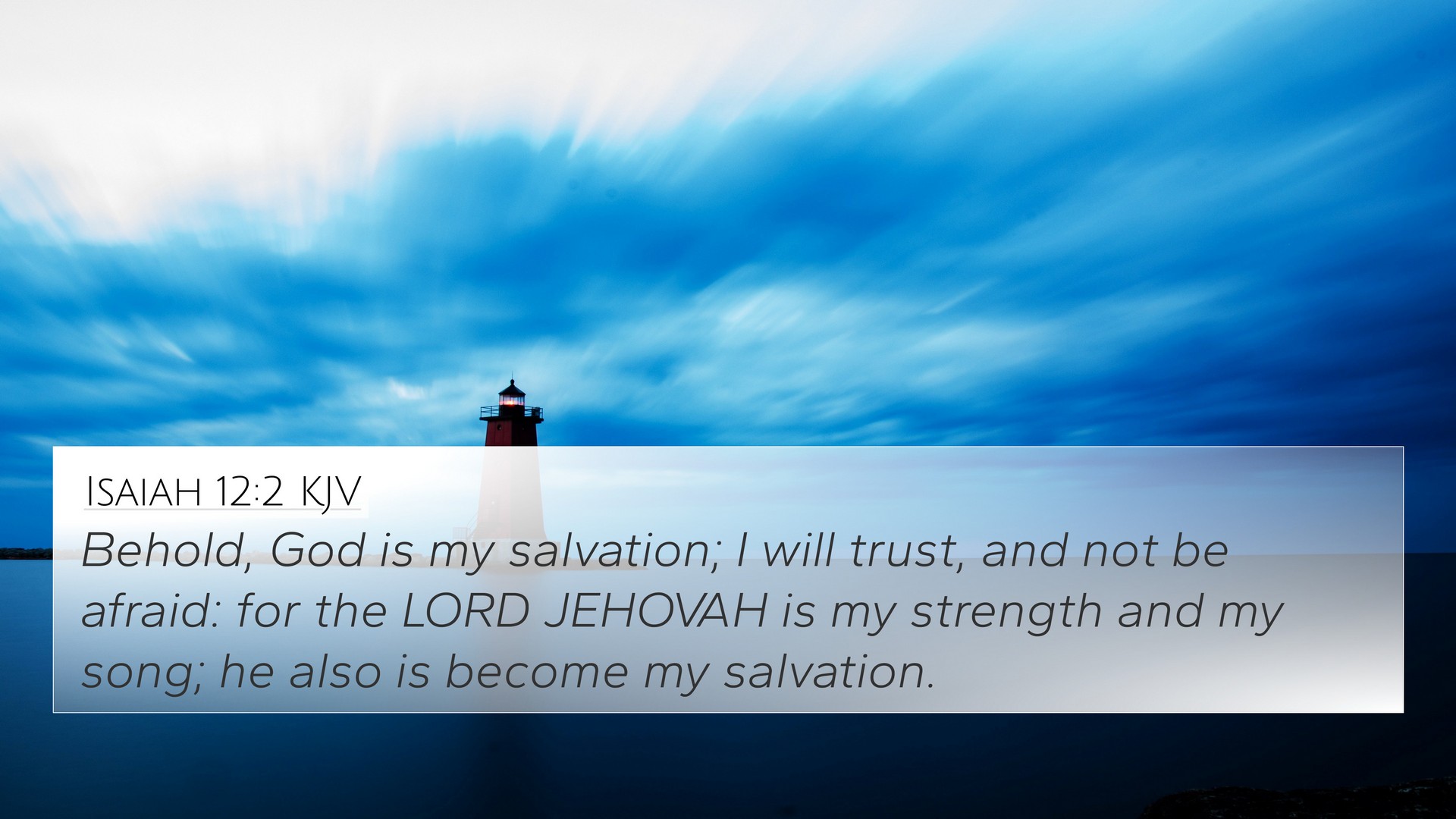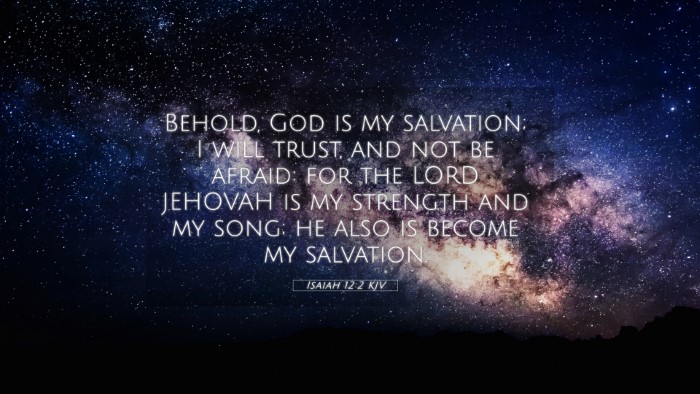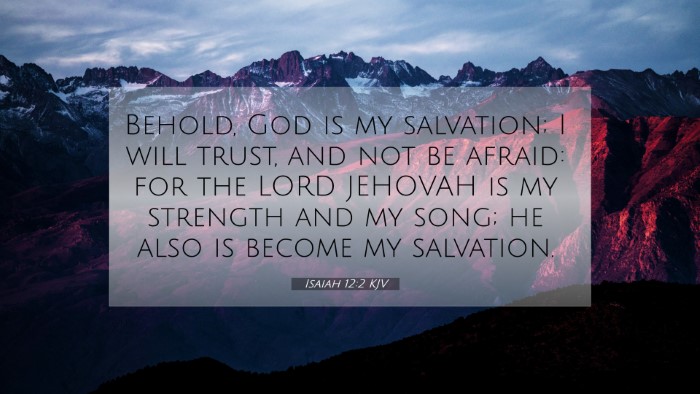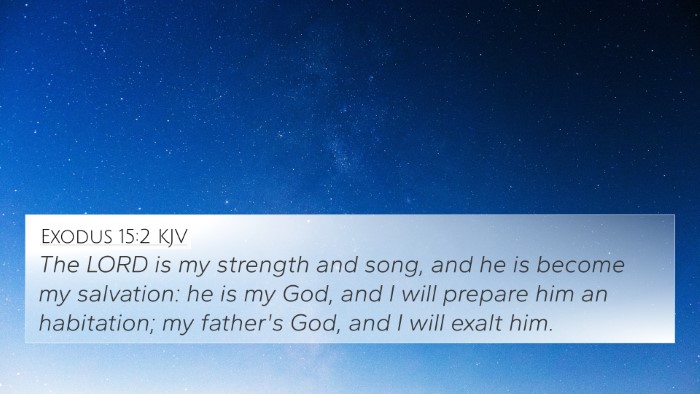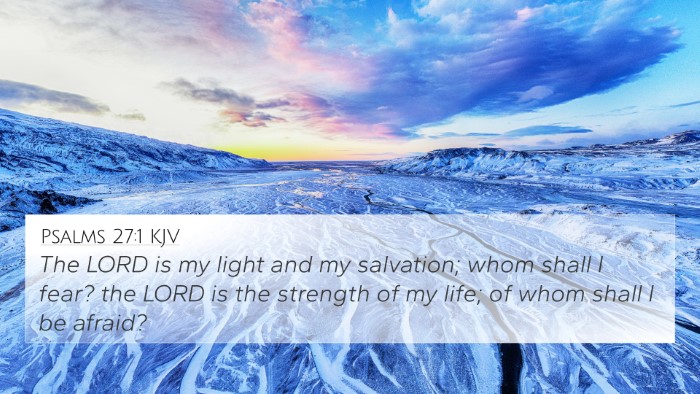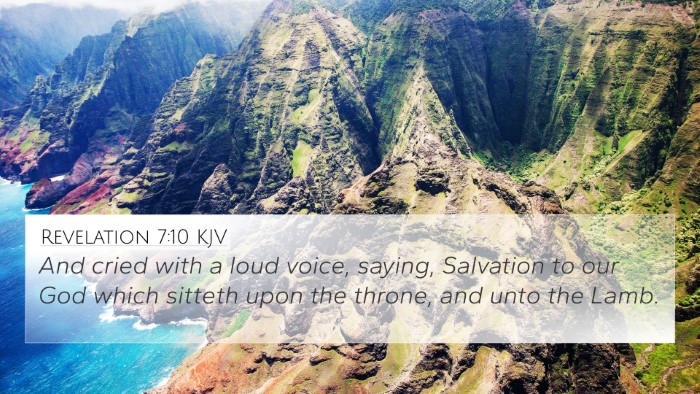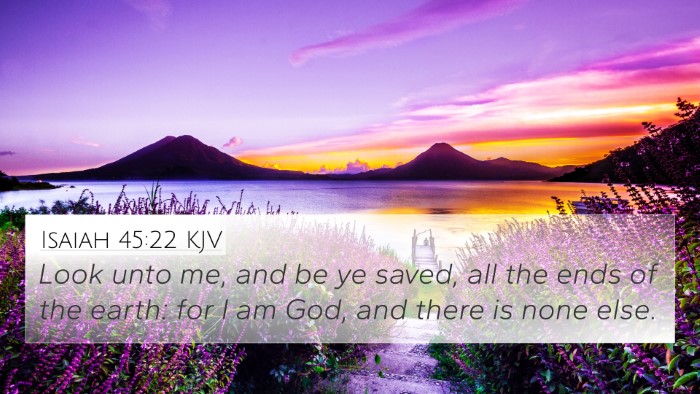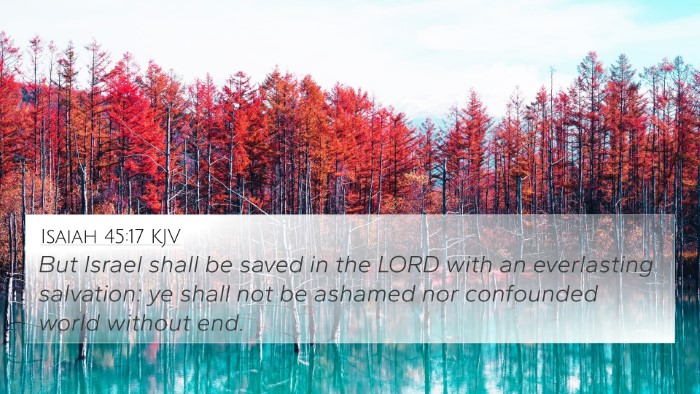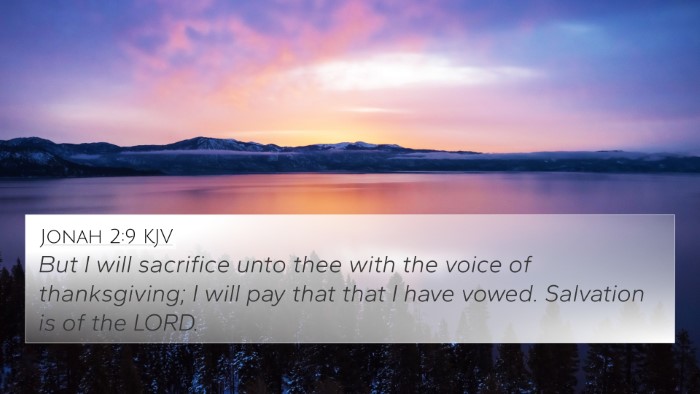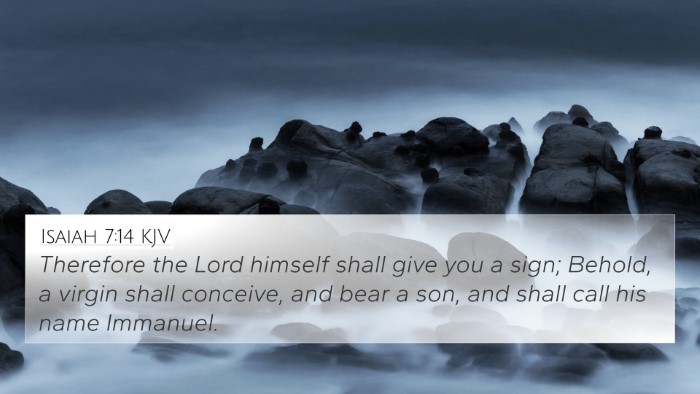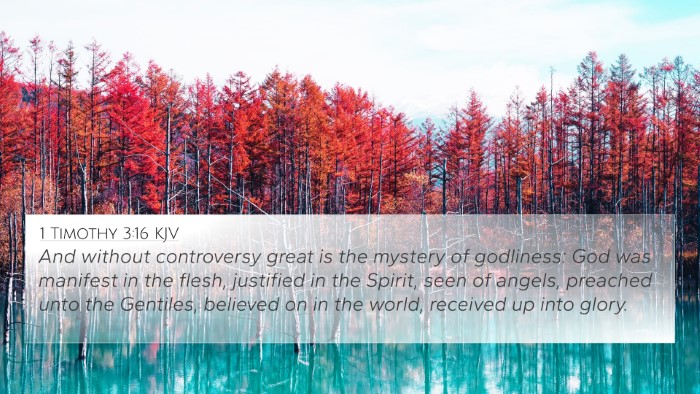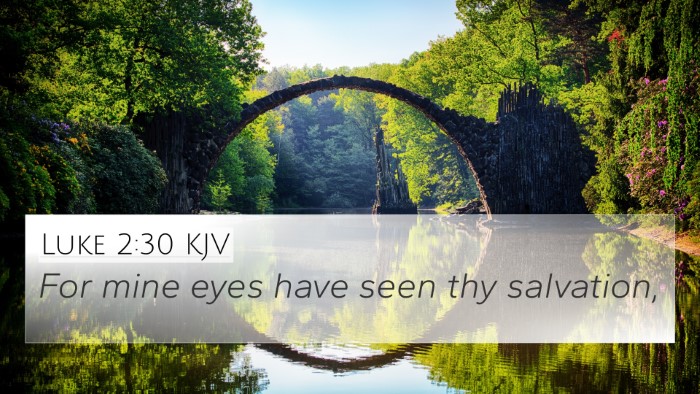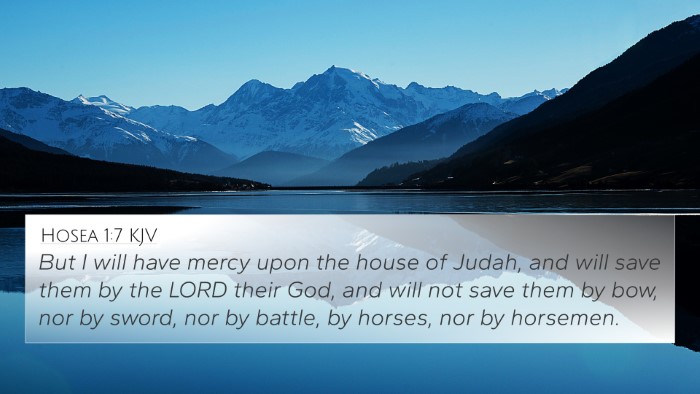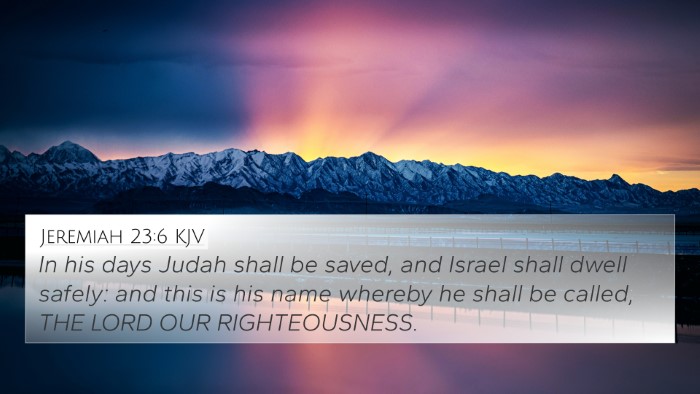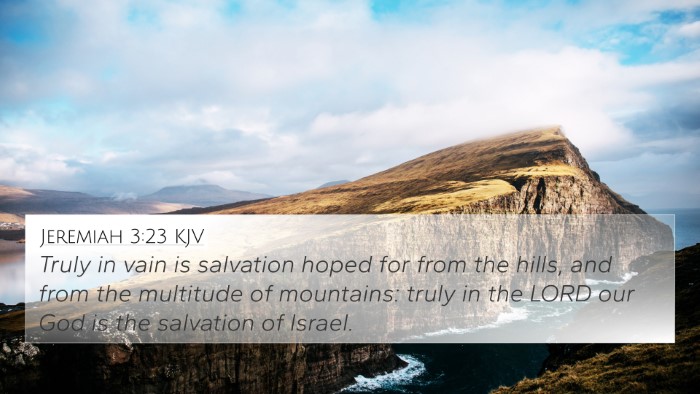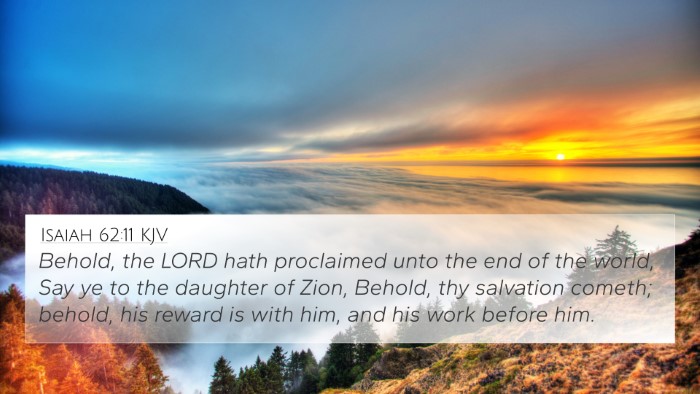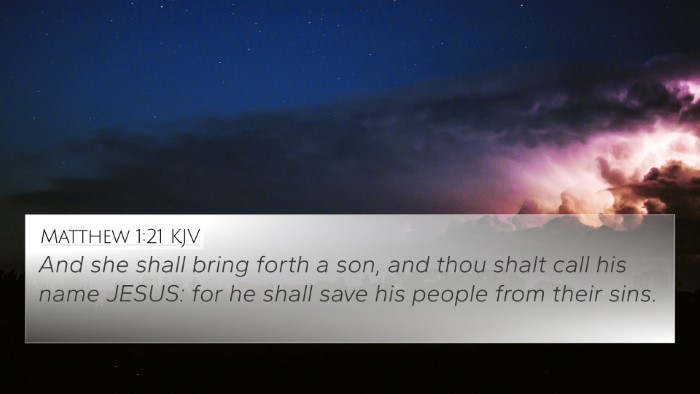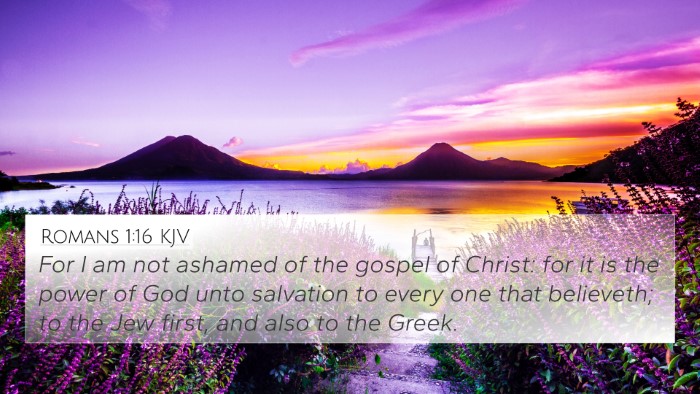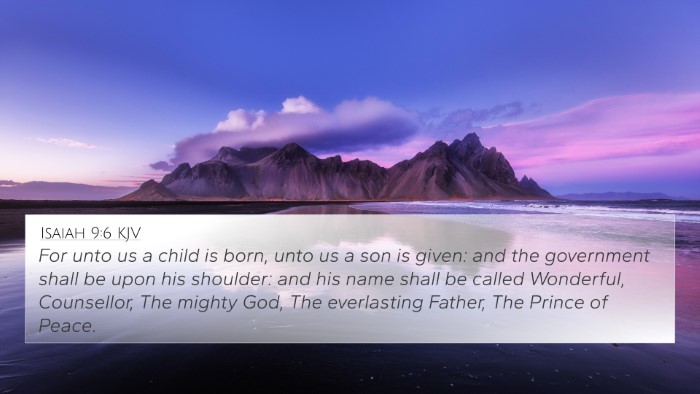Understanding Isaiah 12:2
Isaiah 12:2 reads, "Behold, God is my salvation; I will trust and not be afraid; for the Lord Jehovah is my strength and my song; he also is become my salvation." This verse encapsulates a profound declaration of faith, trust, and the recognition of God's salvific power.
Insights from Public Domain Commentaries
This section draws from the commentaries of Matthew Henry, Albert Barnes, and Adam Clarke to offer a comprehensive analysis of Isaiah 12:2.
Matthew Henry's Commentary
Henry emphasizes the personal relationship of the believer with God. He points out that the phrase "God is my salvation" reflects a deep-rooted conviction of reliance upon God, underscoring that salvation is not merely a historical event but a present experience. He notes that trust in God dispels fear, showcasing God's role as both protector and provider. Furthermore, Henry highlights the joy found in salvation, with the assertion that God is not just a distant savior but intimately involved in the believer's life as "my strength and my song."
Albert Barnes' Notes
Barnes focuses on the assurance and comfort that believers find in their faith. He draws connections to other scriptural passages to illustrate that God's power is a source of strength and joy. He emphasizes that the believer's trust in God provides a foundation that withstands fear, affirming that true strength comes from reliance on God. The phrase "he also is become my salvation" conveys an active and ongoing relationship, suggesting that salvation is both a past event and a present reality.
Adam Clarke's Commentary
Clarke elaborates on the transformational aspect of God's salvation. He interprets the term "song" as a metaphor for joy and celebration, indicative of a life transformed by faith. Clarke elucidates further that the absence of fear in the face of adversity highlights God's ultimate strength and deliverance. He encourages believers to reflect upon the continuous nature of salvation, encouraging a perspective that recognizes God as both the source and the sustainer of their faith.
Bible Verse Cross-References
- Exodus 15:2: "The Lord is my strength and song, and he has become my salvation." This passage highlights a similar theme of God as both strength and song, reinforcing the idea of rejoicing in salvation.
- Psalms 118:14: "The Lord is my strength and song, and he has become my salvation." This verse echoes the sentiments expressed in Isaiah, illustrating thematic connections throughout scripture.
- Psalms 27:1: "The Lord is my light and my salvation; whom shall I fear?" Here, we see the emphasis on fearlessness attributed to trust in God.
- Philippians 4:13: "I can do all things through Christ which strengtheneth me." This New Testament affirmation of strength through Christ aligns with the message found in Isaiah.
- Isaiah 26:4: "Trust ye in the Lord for ever: for in the Lord Jehovah is everlasting strength." A direct link to the theme of trust and strength in God's character.
- Romans 10:9: "That if thou shalt confess with thy mouth the Lord Jesus, and shalt believe in thine heart that God hath raised him from the dead, thou shalt be saved." Relating the assurance of salvation in the New Testament context.
- 2 Corinthians 12:9: "My grace is sufficient for thee: for my strength is made perfect in weakness." This verse correlates with the notion of relying on God's strength amidst fear or weakness.
- Hebrews 13:6: "So that we may boldly say, The Lord is my helper, and I will not fear what man shall do unto me." Reinforcing the theme of trusting God over fear.
- John 14:27: "Peace I leave with you, my peace I give unto you: not as the world giveth, give I unto you. Let not your heart be troubled, neither let it be afraid." A triumphant declaration of the peace that accompanies faith.
- Psalm 3:6: "I will not be afraid of ten thousands of people, that have set themselves against me round about." This reflects the fearless trust exemplified in Isaiah 12:2.
Connections Between Bible Verses
Examining cross-references allows for a deeper understanding of the inter-Biblical dialogue present in the verse. It is essential to recognize how the Old Testament prophecies are echoed and fulfilled in New Testament literature, underscoring a continuous thread of God's promise of salvation and strength. This highlights the importance of using tools for Bible cross-referencing as they provide vital insights into shared themes, narrative continuities, and God's character.
How to Use Bible Cross-References
To effectively engage with cross-references, consider the following methods:
- Bible Concordance: Utilize a Bible concordance to find similar terms and thematic links throughout scripture.
- Bible Cross-Reference Guide: Refer to comprehensive guides that index related verses, making thematic studies more accessible.
- Cross-Reference Bible Study: Implement these references into your study routine to discover how different parts of the Bible inform one another.
- Identifying Connections: Focus on observing how different authors address similar themes, enhancing your understanding of the scriptural narrative.
Thematic Bible Verse Connections
Researching the relationships between verses broadens understanding, especially in the study of themes like salvation, strength, and divine assurance. Cross-referencing Bible study methods facilitate an exploration of how God’s promised salvation is an everlasting source of strength, as illustrated in Isaiah 12:2 and its associated verses.
Conclusion
Isaiah 12:2 encapsulates crucial elements of faith: trust, strength, and the joy of salvation. The insights gleaned from renowned biblical commentaries, alongside cross-references, create a rich tapestry of meaning that enhances both understanding and application of this verse. By engaging with these connections, believers can cultivate a more profound sense of their faith journey.
